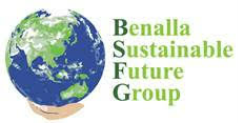Plastic
Some of you may think it is difficult to stop using plastic. It is.
Plastic is ubiquitous and it is made to last a very long time. It is packaged around our food.
Some would even say it has started to become part of our food.
It is in our make-up and personal hygiene products. It is in our clothing.
Plastic is ubiquitous and it is made to last a very long time. It is packaged around our food.
Some would even say it has started to become part of our food.
It is in our make-up and personal hygiene products. It is in our clothing.
The environmental impacts of plastic bag use include:
- Danger to animal life, especially when they find their way into the sea.
- Pacific Trash Vortex. The amount of floating plastics in the world’s oceans is increasing dramatically.
- Litter problem. Plastic bags are a highly visible, ugly component of litter.
- Loss of resources. Plastic bags are typically used for a short period of time but take hundreds of years to break down in landfill. While plastic bags can be recycled, only a tiny proportion of plastic bags are collected and reprocessed.
- Greenhouse gases. Based on using ten lightweight plastic bags per week over a 2-year period, the greenhouse gas impact has more than three times the greenhouse gas impact of a reusable ‘green bag’.
- A lightweight plastic bags consumes about 4.5 times more energy in its manufacture than reusable ‘green bags’.
- To get the full greenhouse gas benefit from a reusable ‘green bag’, it must be reused over 100 times.
- Starch-based biodegradable (or ‘compostable’) bags consume less than one-third of the energy to produce as plastic alternatives, but emit marginally more carbon dioxide (CO2 - a greenhouse gas) as they decompose. However, unlike single use plastic bags, biodegradable bags will completely breakdown.
Plastic Free campaign resources - checkout http://plasticbagfreevictoria.org and:
'Plastic Free July' -
|
Plastic Bottle CampaignBSFG President John Lloyd has had this slide show for some time and sees it having continuing relevance today. Scroll down to view the complete slide show..
Your browser does not support viewing this document. Click here to download the document.
|
|
|
Benalla Sustainable Future Group acknowledges the traditional owners of the land on which we live, work and meet, the Taungerang, Yorta Yorta and Bpangerang people
of North East Victoria, and pay our respects to their elders past, present and emerging.
of North East Victoria, and pay our respects to their elders past, present and emerging.



